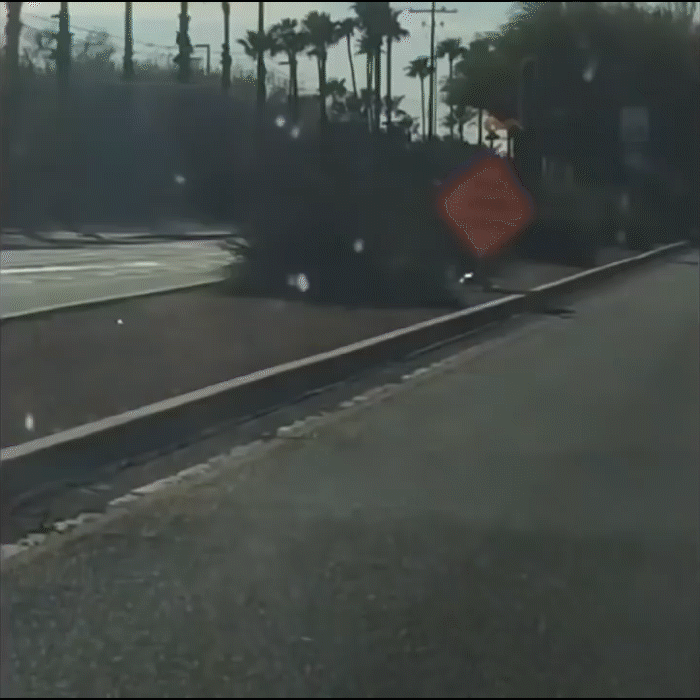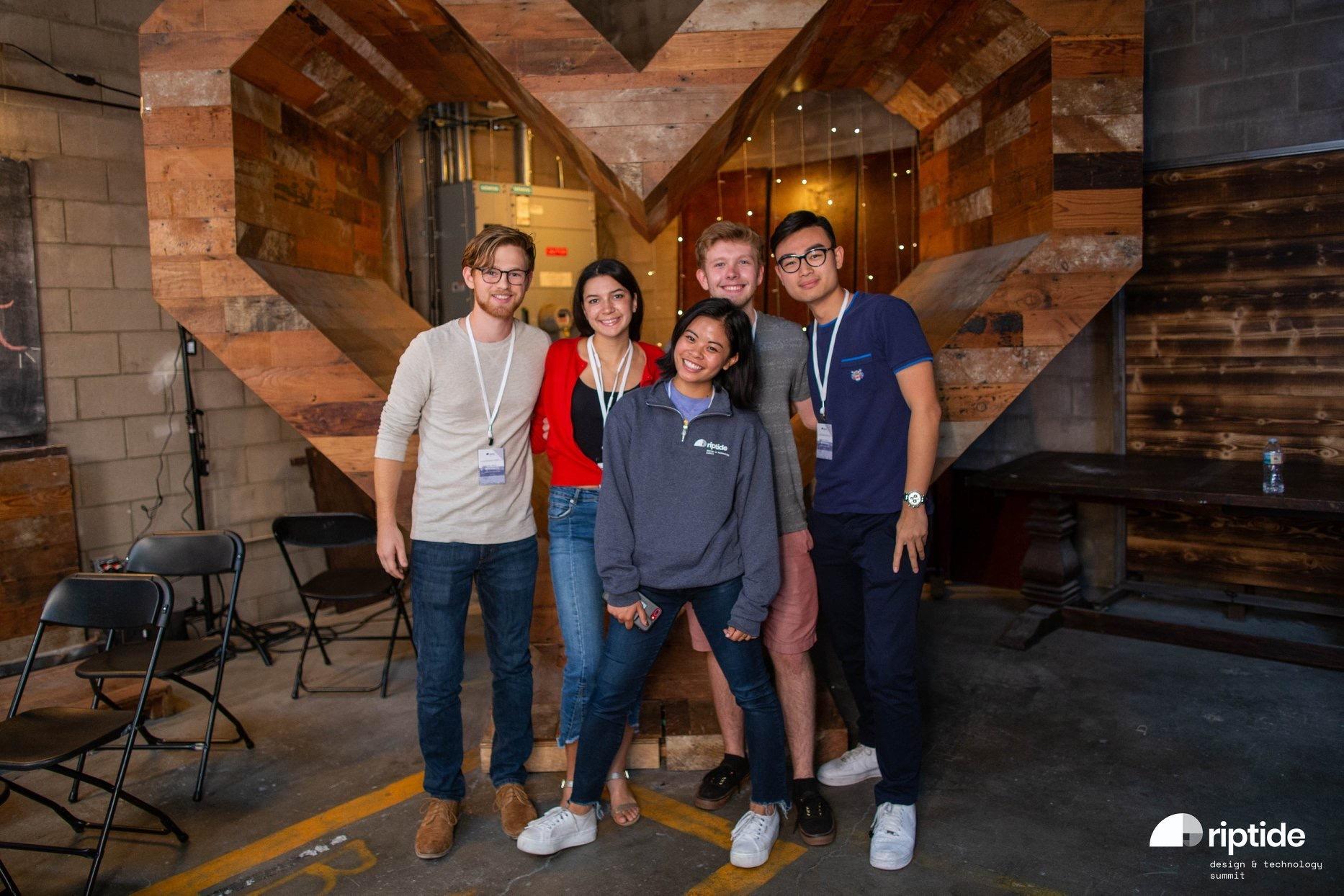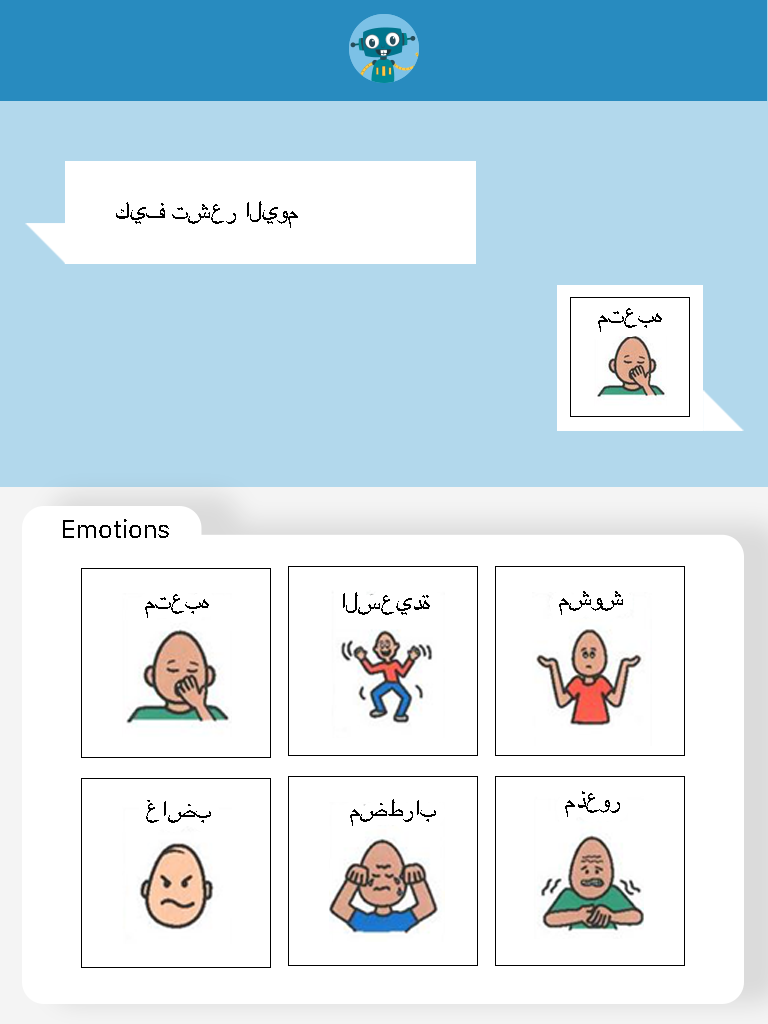OkBot
Page is under construction. There's still content, just not a lot of it.

No 1 About
A group of friends and I won the grand prize at a hackathon last semester. This is our project.
Futurethon 2018's innovation target was a solution for global refugees and internally displaced people. We focused on the mental health of children in refugee camps by creating an app for NGO volunteers to communicate through pictures with children left non-verbal by PTSD.
At the hackathon, we started by determining a feasible area of impact. We knew that with a small team of six, we would need to focus on a narrow problem instead of the bigger picture. We were exploring methods of communication when one of my team members who had recently been working in Camp Moria in Greece shared that they struggled with even speaking to many children with selective mutism after traumatic events, making it difficult for them to even ask for immediate aid. I brought up how students with cerebral palsy are non-verbal but use a picture exchange system to communicate, and that we could use something similar with refugee children.
We proposed a visual speech pathology app for volunteer psychologists and aid workers to use as a prompt and response tool to communicate with children so they could share their current thoughts and past experiences.

Here's our team! Aidan, myself, Andrew, Antoine, and then Abby in the front. Arya is also on our team, but not pictured.
No 2 Progress
What we're up to now.
Currently we are working alongside Global Shapers of the World Economic Forum (WEF) to conduct in-depth research and development. What makes this project both extremely exciting but difficult to maneuver is the breadth of information required to create a successful product in such specific circumstances. We need to consider not only the culture of the people, but the culture of refugee camps themselves. We also have to structure the app for people with PTSD. There is a lot for us to research and a lot for us to learn, but we are excited to continue working to arrive at a solution.
As we continue production, one of the most difficult challenges for us is creating for users who have entirely different experiences and needs than our own. We need to navigate areas of mental health, Syrian culture, internal refugee relations, lexical gaps between English and Arabic, and child psychology. Our mentors at the WEF advise us on their own areas of expertise, but as designers, we decide how to parse and prioritize that information. Because the research is so specific, we are in the process of conducting 100 interviews with experts in their respective fields to get the most relevant and contextual information.
Most challenges we've faced so far have been cultural and lingual: when conducting surveys on living conditions we found that it is taboo to ask for things you need, so we rephrased the question to ask what would be on their shopping list instead. We also discovered that the Arabic language has very few words in the realm of mental health and psychology, and what words exist, are dangerous to speak about in refugee camps for fear of being labeled as "Majnoon” or insane. We reached out to the Middle East Psychological Association for mentorship on navigating the language in our program.

